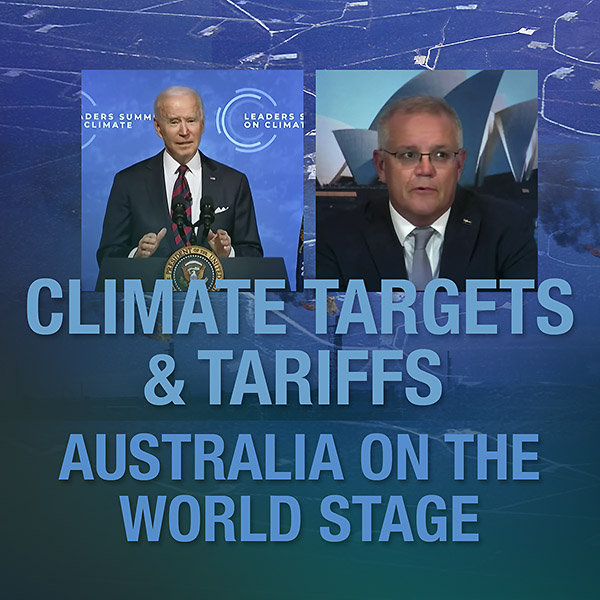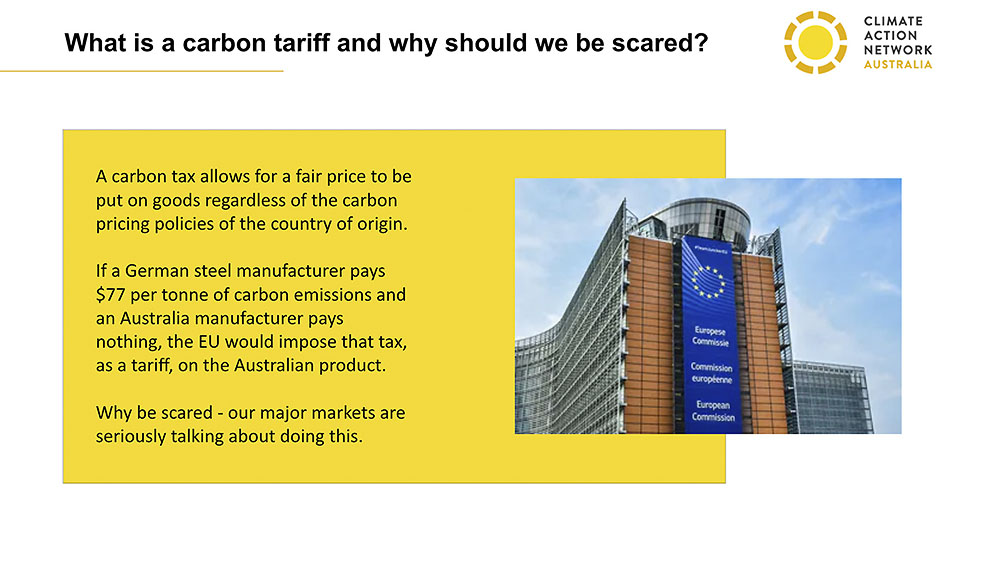At our April 28 meeting, we were pleased and privileged to have Glen Klatovsky from Climate Action Network Australia (CANA) and Richie Merzian from The Australia Institute (TAI) addressing climate targets and tariffs shortly after the Biden Climate summit.
Check out the event on You Tube – complete with headings and chapter points
A recording of the event may be found on our Facebook page.
Copies of Glen Klatovsky’s slides can be downloaded here.
A shorter ‘event highlights’ recording is coming soon via our YouTube channel.
Glen Klatovsky
A short history of federal action on climate change
Glen provided an understanding of Australia’s current position with regard to climate change and how we got here. He took us back to 2013, a time when we had a framework to deal with emissions and general community support for climate action. Enter Abbot the destroyer.
Tony Abbot gained power by attacking the government and by criticising everything they did. One of his key areas of focus was climate action. He managed to turn climate action into a political agenda item and set about dismantling the emissions framework once he became Prime Minister. Since then successive coalition governments have ignored climate change as an issue and even modest actions in this area have led to political spills. This has led Australia to the position where it has weak or poorly defined policies to mitigate or adapt to climate change.
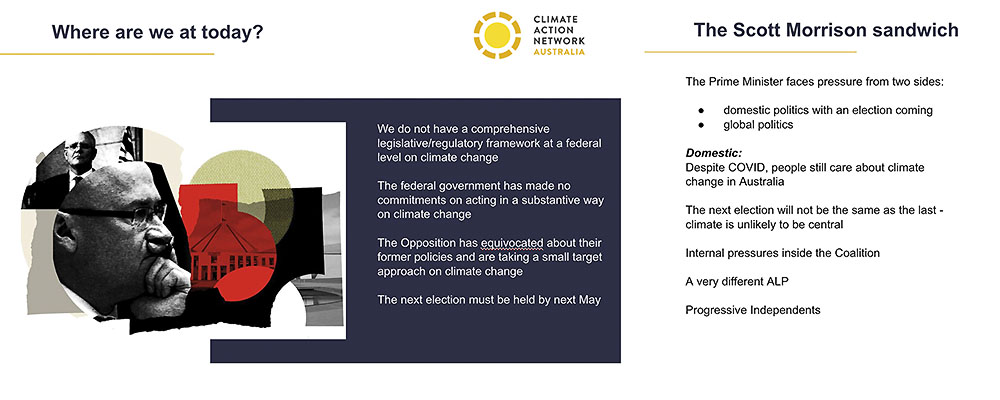
The 2019 election was dubbed the “climate election” and failed to provide a climate outcome. The current Prime Minister has a history of supporting the fossil fuel sector and his current Chief of Staff was a previous Deputy CEO of the Minerals Council of Australia from 2010 to 2016.
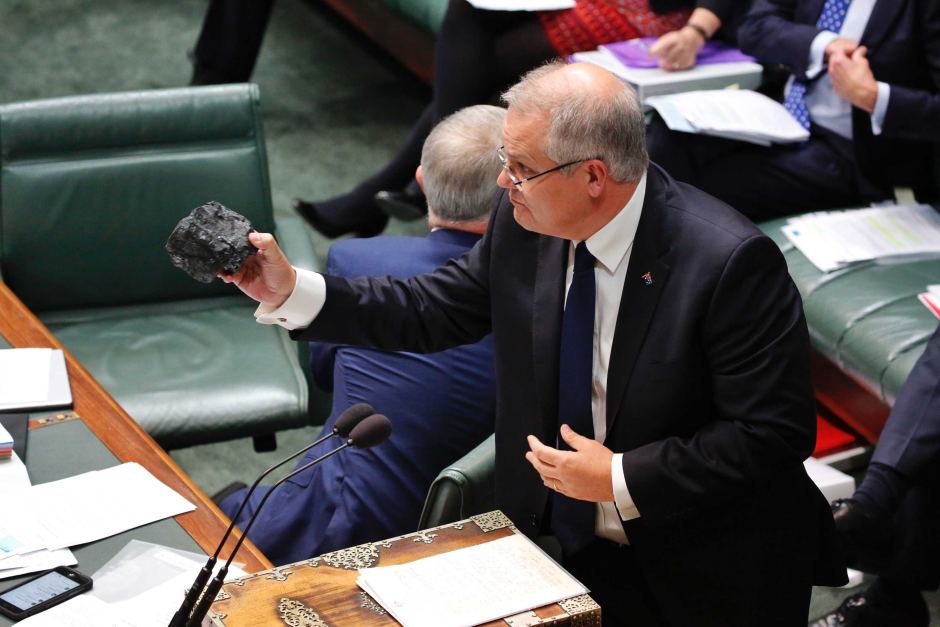
The changing world
Over the last few years the world has had to deal with COVID-19 and Australia has had to deal with extreme bushfires, droughts and floods. These momentous events have been so extreme that they have been frequently described by experienced firefighters, farmers and others as unprecedented. Most Australians still do not understand that wind and solar generation is now delivering low grid prices, is reducing demand on the grid, and is reducing our emissions from the electricity sector. The Australian Government has been able to continue its policy of taking inadequate action on climate change.
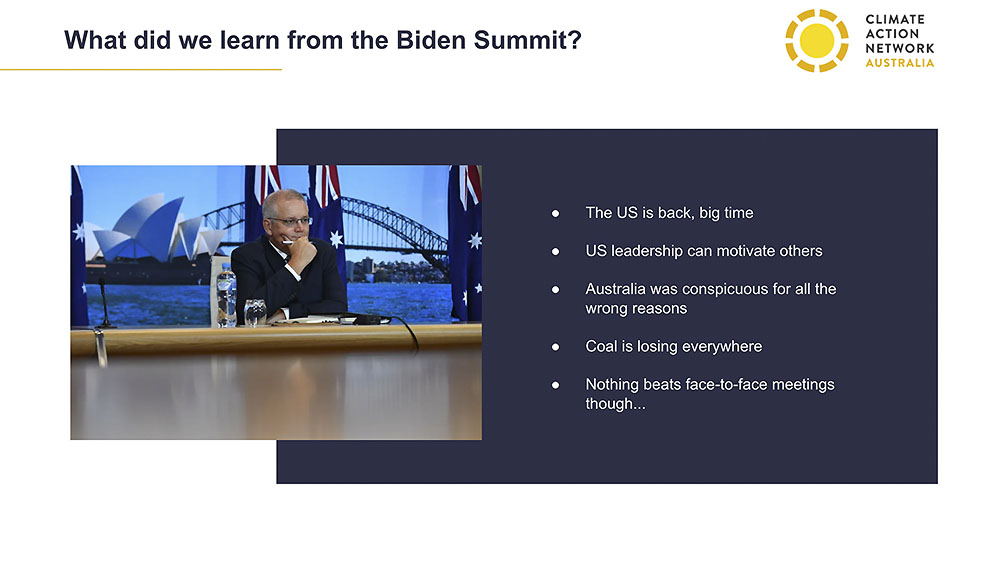
However. this is changing and the Government now has to deal with pressure from both sides. On the domestic side, there is an election coming in the next year. Internationally, overseas governments, in particular the UK and the US, are taking aggressive action to reduce emissions and are pressuring Australia to act before the UN international climate conference (COP26) in Glasgow in November.
Glen finished his talk by referring to Biden’s January 20 Executive Order on Protecting Public Health and the Environment and Restoring Science to Tackle the Climate Crisis. Glen referred to this as one of the most extraordinary documents that he has ever read.
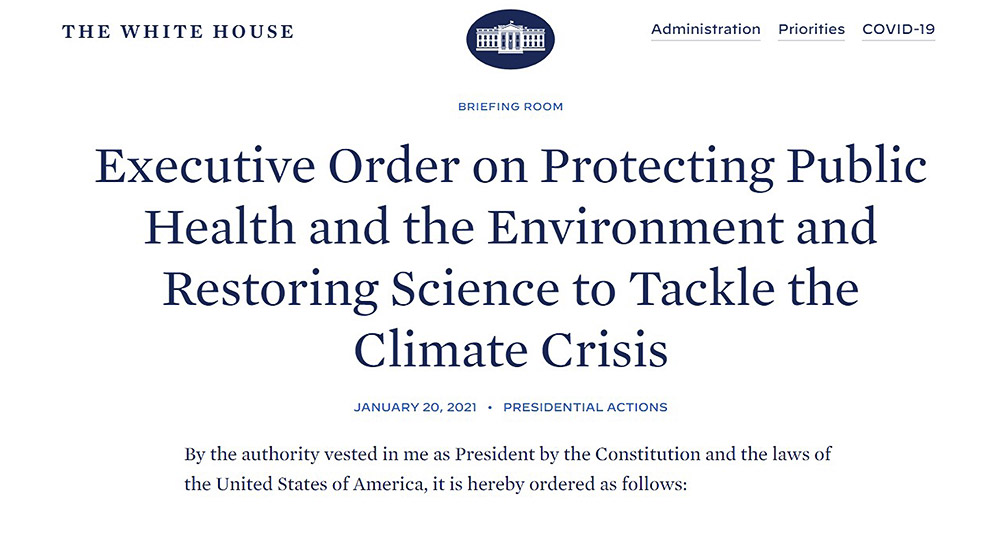
Richie Merzian
Richie opened with a declaration of hope. In his view, there is more momentum in the climate arena since 2014. This momentum is led by the US, the second-largest emitter in the world. The US economy is also the largest economy in the world and the US is re-establishing itself as an international influencer.
Richie then referred to the Biden effect that is changing the way that the world responds to climate change. Joe Biden promised to call a climate leaders’ summit in his first one hundred days and he followed up on that promise.
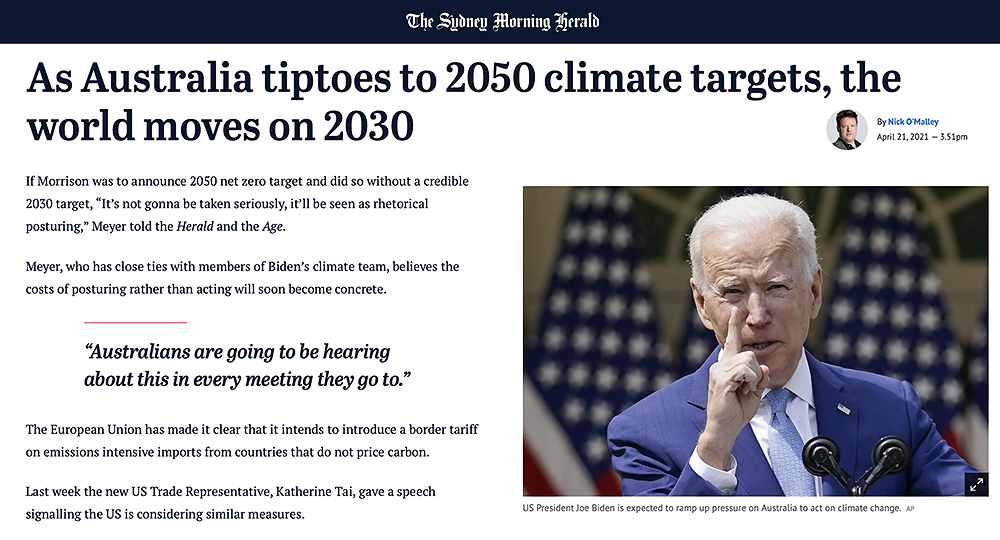
The US has just announced a most ambitious climate action plan and has set targets to have 100% clean energy by 2035 and to at least halve emissions by 2030. In addition, the US has paused fossil fuel subsidies and exploration is electrifying the government’s fleet of vehicles and has committed to building EVs.
Richie noted that other countries had followed the lead with the UK and the EU elevating their targets. The US has also entered into partnerships with India and China and is looking for co-operation in addressing the climate crisis. Unfortunately, our prime minister announced nothing and undermined the pledges made by other countries.
Richie stated that Australia’s position has resulted in Australia being targeted by all countries and organisations that are committed to action. He was also of the view that border adjustments (tariffs/taxes) were likely to be introduced if Australia does not respond to the pressure being applied by other countries. Basically, if we do not take responsible action the world will tax us until we do.
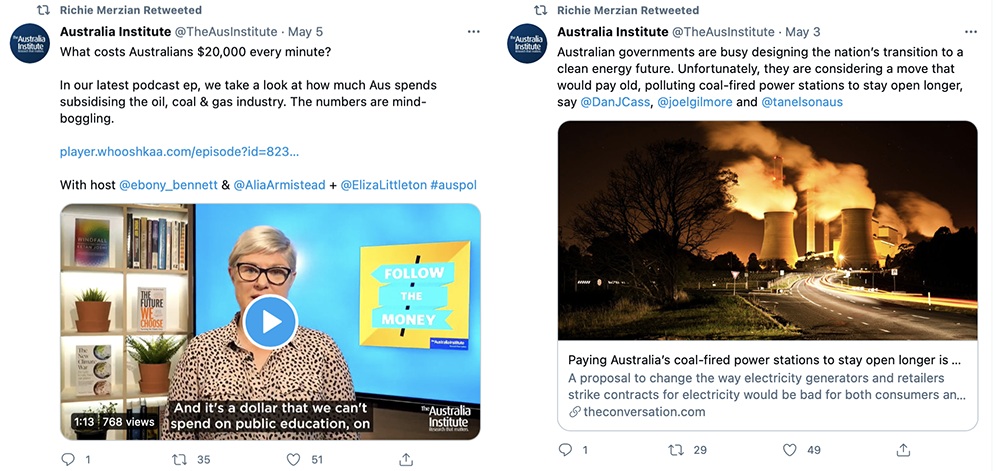
Richie then set out frankly the current position in Australia. We are the third-largest exporter of fossil fuels in the world, we are not transitioning fast enough and we have no effective transition plan.
He then stated that it was important that we address the problem by calling it out. One of the major issues that should be addressed is our lack of understanding of the role of fossil fuels in our economy. Surveys show that Australians overestimate the number of jobs in coal extraction by a factor of 20 and the number of jobs in gas and oil extraction by a factor of 40. Similarly, the revenue that we raise from petroleum industries is approximately $1 billion per annum. Most people expect this to be around $50 billion. Given the misconceptions highlighted above, it is not surprising that most Australians believe that the fossil fuel industry is fundamental to our prosperity.
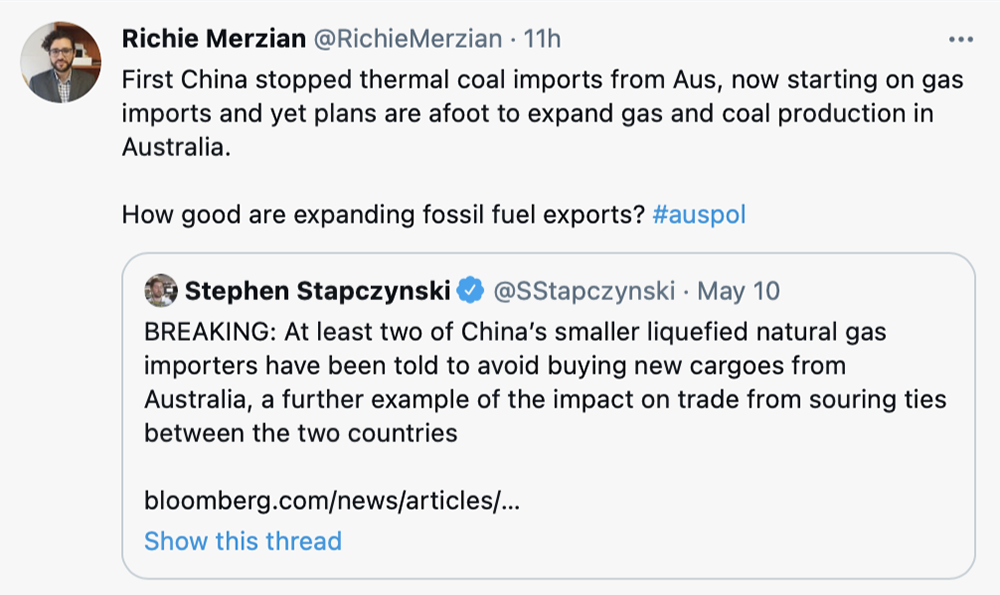
Richie then warned us that we should also be aware of the next move by the fossil fuel industry where they will try to tell us that hydrogen produced using fossil fuels is clean energy. It isn’t. Hydrogen produced by burning fossil fuels is a very dirty fuel but the industry is trying to extend the life of fossil fuels by hiding the facts.

Richie then finished his presentation by talking about EVs. He stated that we had a policy failure in Australia that has resulted in minimal take-up of EVs. This is based on the failure to provide any incentives for EV buyers together with the lack of any emission standards for vehicles. This has resulted in Australia becoming a dumping ground for high-emission vehicles.
His final comment was a call to take action to stop the proposed Victorian tax on EVs. This tax has been made possible by the policy vacuum at the federal level. Australia has the lowest take-up of EVs of any OECD country. We should call our politicians and ask them not to vote for a tax on EVs.

